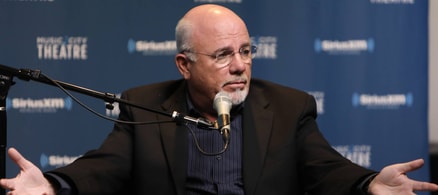If you’re toying with quitting your job, you’re not alone.
The pandemic has a lot of Canadians questioning their employment status, especially young people. HR experts and hiring managers are seeing signs of the Great Resignation – an exodus of workers worldwide saying goodbye to their traditional 9-5 jobs. While many are quitting due to burnout or care for dependents, others are motivated to pursue entrepreneurship, seek better pay and (remote) working conditions, change professions, or just take a career break.
Laura Williams, a managing partner at Williams HR Law, attributes this phenomenon to changing attitudes around work culture.
“We want more autonomy and control over how we work,” she said. “We also want to be working in places and spaces and alongside people where we feel that we are getting meaning from the work we’re performing and contributing.”
For Folarin Odunayo, the pandemic accelerated his desire to quit his job as a financial advisor and go back to school full-time.
“The pandemic put for me in clear terms the differences between the organization I was working for and the type of organization I would like to work for moving forward,” he says. “I also looked at the pandemic as an opportunity to be able to change things for myself and come out of it a different person.”
Whatever the reason for quitting your job, there are both financial and emotional consequences to consider before handing in your notice. While you can’t control the future, you can avoid some of the common pitfalls. Here’s how to safeguard yourself from the potential financial losses of quitting your job.
Realign your budget
First, figure out your cost of living. That means keeping track of both your fixed expenses (e.g. rent, utilities, insurance, etc.) and variable expenses (clothing costs, dining out, entertainment) to calculate how much you spend per month. This exercise will help you nail down roughly how much you can afford to spend each month and identify where you may need to trim your spending.
“Nothing is too silly to write down,” says Odunayo. “If you spent money on it last month, note it down and create a budget line for it.”
After you’ve reviewed your previous month’s spending, you’ll be able to see where you need to make cuts.
Ask yourself what non-essentials you can readily eliminate and prioritize paying for your immediate necessities first.
If you struggle to budget with a pen and paper (or an Excel spreadsheet), a budgeting app can help.
Read more: The best budgeting apps in Canada
Bulk up your emergency fund
If you’ve already decided to quit your job, start saving now for any unexpected events. Whether it’s repairing a car or paying for a new mobile phone, having a well-stocked emergency fund will help prevent debt while you’re out of work; it will also ease some financial anxiety by giving you a buffer.
Experts generally recommend stacking up 3-6 months of your take-home pay for emergencies. You can use an emergency fund calculator to determine precisely how much you will need based on the amount of time you anticipate being without a paycheque. But the point is to stash cash into a high-interest savings account to help cover any “surprises” that may come up during your unemployment.
When it comes to retirement savings, try to figure out a balance between managing your fixed expenses and safeguarding your future self. You may have to temporarily hit pause on any TFSA or RRSP contributions while you focus on paying for the essentials.
Read more: The best high-interest savings accounts in Canada
Line up your next chapter
Next, start planning what you want to do next. That may sound simple, but really, it can be the most anxiety-provoking part of this quitting journey. If you’re going the entrepreneurship route, Saijal Patel, founder of financial wellness consulting firm Saij Elle, suggests putting your business strategy together before handing in your resignation letter.
“If you have a product, try to launch a minimal viable product to test your concept,” she says. “Getting a business going and actually getting revenue in the door takes way longer than most entrepreneurs think.”
For Odunayo, his plans included making use of his existing skills: playing guitar for hire and financial advising to make money in the meantime.
“I made plans for four months, six months, and eight months,” says Odunayo. “And in each version of my plan, I had an idea of how much money I need to generate.”
With the rise of the gig economy, making money doesn’t always require a full-time commitment. From delivering groceries, renting out a room in your home or selling a service on Upwork, you have options to generate some extra cash.
Although every business is different, you can’t expect to be profitable right away. Especially when there are costs associated with setting up a business to consider such as equipment, incorporation fees, inventory, and website and email hosting.
Read more: 7 steps to starting a business in Canada
Keep yourself covered
In most cases, employment benefits end once you’ve left the office. You’ll want to use up whatever health and dental benefits you’re entitled to before leaving your job. And if these benefits are important to you, get your own benefit plan to avoid any gaps in coverage.
Most companies that offer group insurance plans provide individual ones. The premiums can vary, so it’s best to compare a few quotes before you sign up.
If your employer offers other benefits—like a group-registered RRSP, life insurance, or company pension plan—you should talk to a fee-based financial planner to go over your options. And don’t gloss over the fine print.
“There could be some right to convert some aspects of group insurance plans like life insurance, for example, to an individual plan,” adds Williams. “If you have benefits, you always want to review the original documents before you leave.”
Some robo advisors, like Wealthsimple, also offer financial planning and advice. If you’re figuring out what to do with a company pension, for example, you’ll want to consult a financial expert about whether to transfer it to a LIRA or leave it with the company.
Read more: Should I transfer my company pension?
Practice financial self-care
It’s normal to have mixed feelings about leaving a job. In the months leading up to Odunayo’s resignation, he went through a rollercoaster of emotions.
“I was absolutely terrified. Those fears were very real and very present,” says Odunayo. “I still face them in some ways today. How can I maintain my lifestyle without a consistent source of income? Can I be good at doing something else? Do I have the skill set or the qualifications?”
Furthermore, be realistic about your spending. You’re not going to sit at home eating ramen, day after day, so make room in your budget for things that make you happy. That way, you won’t feel guilty about treating yourself and you’ll be less inclined to overspend.
An easy way to do this is by getting on board with the 50/30/20 budget. With this easy budgeting rule, you allocate 30% of your savings towards “wants.”
Quit your job on good terms
Think twice about going out with your middle finger in the air—at least while you’re on the premises. While making sure you quit your job on good terms might not seem like an obvious financial move, Williams says it is the first step in protecting your financial future.
“You never want to burn a bridge,” says Williams. “You never know who is going to show up in the next chapter, so you want to leave on as best terms as possible.”
That means honouring the resignation notice period in your contract and helping with the transition of your responsibilities as necessary.
Leaving on a high note can net you a glowing reference and might even leave the door open for future opportunities—who knows? Maybe they’ll hire you back as a consultant.
The last word
Whether you’re continuing your education, turning to entrepreneurship, seeking better a salary or working conditions, changing professions, or taking a break, there’s a lot to think about.
Quitting your job can be challenging for your finances, health, and emotional well-being. The best thing that you can do for yourself is to have a strategy and a backup plan before bidding farewell.
And if you’re leaving your job out of emotional distress or burn-out, consider talking to a mental health professional. That could mean getting a referral from your family doctor or seeking out information from your local mental health organization. There’s help out there if you need it!





